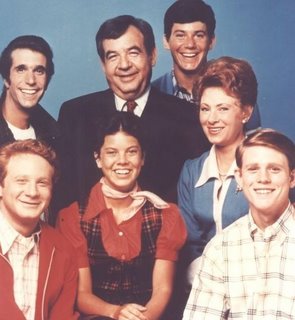
I read an article in New York Magazine this week about Happiness.
It is a lengthy, well researched and fascinating story written by Jennifer Senior, that covers a wide array of topics related to happiness. It asks if and why New Yorkers are happy or unhappy.
It talks about the Paradox of Choice (that sometimes too much choice is a bad thing). It notes studies and reports from around the world on who and who isn't happy and why (married people are happier, religious people are happier, Guatamalans are happier than Japanese etc.. et. al).
But one small part of this great piece of writing jumped out at me because I had been thinking about its very premise for sometime now.
It seems to me, says Adam Phillips, that anyone who could maintain a state of happiness, given the state of the world, is living in a delusion"
I think there is some real validity in what he says. It may be another way of saying ignorance is bliss.
The article doesn't focus much on this aspect, its just a tiny fragment, but one that caught my interest.
We live in a time when we are bombarded, literally every minute of every hour of every day of the year, with news, most of it bad, incomprehensible, inhumane, depressing and heart rending. The rest is worrisome, detailing clashes, wars, starvation, bombings, rapes, murder, disfigured children
And there the is the information that we get from the people we know as well. How much of it is good news and how much of it is bad? We hear of money problems, job problems, sickness, family issues and conflicts
We absorb information from:
-TV
-The Internet
-Newspapers and Magazines
-Phone
-Blogs
-Emails
-Mobile phones
-Bosses
-Co workers
-Clients
-Close friends and family
-Distant friends and family
We have to process an amount of information that dwarfs what we consumed 20 years ago, 50 years ago, 100 years ago.
Think about how much information a farmer in Iowa in 1910 might have taken in as a comparison. Is too much information the cause unhappinessess? Do we somehow block all this out and numb ourselves to it?
We are also offered more choice in life, The "Paradox of Choice" leaves us in a cycle of desire, satisfaction and regret. We feel we will always make the wrong choice. When I bought my first flat screen TV last year I experienced this. Store visits, web site reviews, price checking, I spent an incredible amount of time and my anticipation grew and grew.
Yet, there was always that gnawing feeling that no matter which TV I chose it would be the wrong choice.
Is Mr. Philips correct? Is it possible that to be truly happy in the world we live in, with the events taking place, with the information we have to process and the choices we have to make, that happiness is a self-induced delusional state used as a survival technique?
"These happy days are yours and mine, happy days"
Addition:
Yahoos Front page at 6:28 p.m. on July 12, 2006
• Israel hits Lebanon after soldiers captured
• Kashmir group scrutinized in India attacks
• Geneva policy won't halt U.S. interrogations
• Protests backing Mexico leftist gather steam
• Inspectors review Boston highway system
• Disney reportedly slashing jobs, film output
• Trees could grow in Antarctica within century
6/13, 2006 ADDITION:
Talk about timing. Look closely at wha the man from Vanuatu says at the end. They absorb less information and have far fewer choices that we do in the industrialized world. Hmmmm.
Vanuatu is world's happiest country: study Wed Jul 12, 11:08 AM ET
LONDON (AFP) - The tiny South Pacific Ocean archipelago of Vanuatu is the happiest country on Earth, according to a study published measuring people's wellbeing and their impact on the environment.
Colombia, Costa Rica, Dominica and Panama complete the top five in the Happy Planet Index, compiled by the British think-tank New Economics Foundation (NEF).
The index combines life satisfaction, life expectancy and environmental footprint -- the amount of land required to sustain the population and absorb its energy consumption.
Zimbabwe came bottom of the 178 countries ranked, below second-worst performer Swaziland, Burundi, the Democratic Republic of Congo and Ukraine.
The Group of Eight industrial powers meet in Saint Petersburg this weekend but have not much to smile about, according to the index.
Italy came out best in 66th place, ahead of Germany (81), Japan (95), Britain (108), Canada (111), France (129), the United States (150) and Russia, in lowly 172nd place.
Andrew Simms, NEF's policy director, said the index "addresses the relative success or failure of countries in giving their citizens a good life while respecting the environmental resource limits on which all our lives depend."
Nic Marks, the head of NEF's centre for wellbeing, added: "It is clear that no single nation listed in the Happy Planet Index has got everything right.
"But the index does reveal patterns that show how we might better achieve long and happy lives for all, whilst living within our environmental means," he said, according to British daily The Guardian.
"The challenge is: can we learn the lessons and apply them?"
Island nations performed particularly well in the rankings. But Vanuatu, with a population of around 200,000, topped them all.
"Don't tell too many people, please," said Marke Lowen of Vanuatu Online, the republic's online newspaper.
"People are generally happy here because they are very satisfied with very little," he told The Guardian.
"This is not a consumer-driven society. Life here is about community and family and goodwill to other people. It's a place where you don't worry too much."
"The only things we fear are cyclones or earthquakes."


